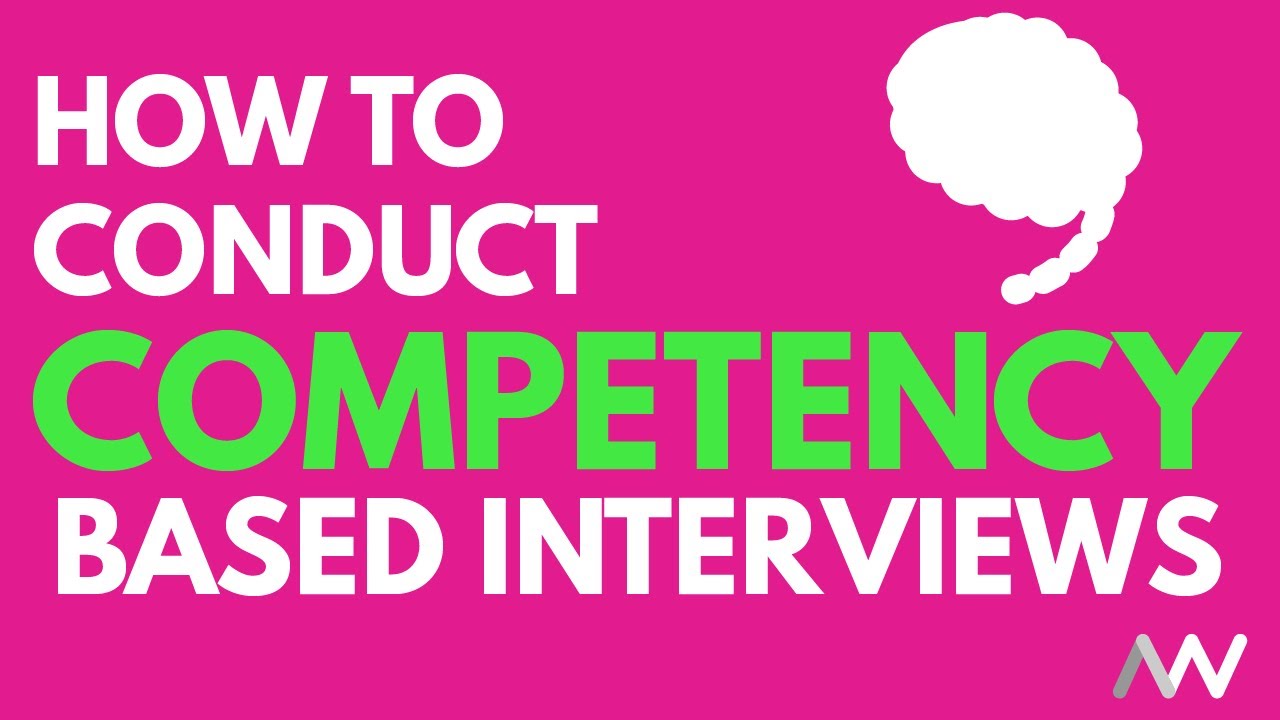
Video on Competency Interviewing
What is a Competency Interview?
First off, what is a "competency interview?" It is nothing more complicated than a well-prepared and planned interview where you ask questions based on what has the candidate actually done. What have they actually achieved? How have they gone about achieving that? Rather than hypothetical questions, such as, in this situation, what would you do if I gave you this challenge? How would you undertake it?
So dispel the myth. It's nothing more complicated than give me examples of when you have, rather than what would you do if? It's all in the planning. It takes time to conduct the first competency interview. But once you've done one, the next time it won't take any time at all. I would recommend committing somewhere between three and four hours to really planning your competency interview in conjunction with your colleagues to get it right.
How to Competency Interview
The key to success in competency interviewing is involving at least two other colleagues, one who's perhaps in the sales role or in a similar department or division, but somebody else who this individual touches. That could be credit control. It could be accounts. It could be marketing. It could be whatever. But involve somebody else from outside your direct division or department.
In terms of the planning, take the job specification and think of somewhere between 5 to 10 key competencies, skills, attributes, qualities, that really are required to succeed in this particular role. Make a list of them. Get agreement from your colleagues that this is exactly what is required.
How to score a competency interview
Once you've set the competencies, now think of a really good, open interview question which will really tease out the information from the candidates so that you can get the evidence to score each candidate against that competency effectively. Then have a scoring mechanism. Either use between 1 and 5 or 1 and 10 and have a grade of what level the candidate has to meet to meet that particular score.
So if a candidate meets a very minimum level, that's one or two. If they meet an average level, three or four. If they really do demonstrate in that interview that they do have that competency, you're then looking at the high scores. So devise the scoring system so that you can then score candidates effectively.
And you may want to weight one competency higher than another. How you weight it is perhaps like times it by one and a half or maybe even two for that really important competency that's required in the role. Then when you come to scoring up, you can then tally all of the scores up, included the weighted scores, and you get a number at the bottom that then helps you to compare candidate A against candidate B against candidate C.
Now we have constructed the list of competencies. We've devised an open question per competency. What we must now do is think of laddering questions for each of those competencies. And laddering questions are no more complicated than drilling the detail on the answer that the candidate gives.
What is really important in competency interviewing, and I know it is so tempting, but you mustn't confer. You mustn't discuss applicants with colleagues that are involved in the recruitment process until all of the notes are written up, all of the scores are tallied together, and you get together in what's conventionally known as the wash-up, the meeting where you each discuss your views on each particular candidate, and you then start making effective decisions.
You have the ability to influence your colleagues. Your colleagues have the ability to influence you. Make sure it doesn't happen. The key is to make your own notes. They'll make their own notes. Bring them together at the end once you've scored each candidate up.
The benefits of competency interviewing are huge. Every candidate will get the same experience, so you don't bias one candidate over another. Also, the candidates that have the interviews with you will enjoy a very structured, planned, and prepared interview with your business, and this will make them want to join your organization.
But also, we've all been there before where we've taken on somebody because their kid went to the same school as ours, or they supported the same football team, or they were interested in the American Civil War in the same way that I am, whatever it may be. By competency interviewing, you're scoring, objectively, one candidate against the other, and that gut feeling, whilst it's important, doesn't take over the entire recruitment process.
Brian Tracy, the business guru, gives a great bit of advice when he says that an interview should have a three by three by three process. That is, three different interviewers, interviewing individually, scoring up, with one of those interviews taking place outside of the office environment. If you conduct three competency interviews with each applicant in that way, you will make great recruitment decisions.
I hope this information has been useful. There is loads of information on our website, including a full guide of how to conduct a competency interview. There's also the competency interview questions that we ask when recruiting our own consultants, and there's also the competencies that we use when recruiting ourselves. So go to staging.aaronwallis.co.uk to download all of that information, and good luck with your competency interviews.
Navigate our Competency Interview Advice categories
by clicking the following icons:
Employer Advice Categories
Navigate our other Employers Advice categories by clicking the following icons:
Date published: 4th August 2025

by Rob Scott
Managing Director

About the author
Rob Scott
Please call us to discuss your vacancy
From our blog
Our employers say...
Our candidates say...







